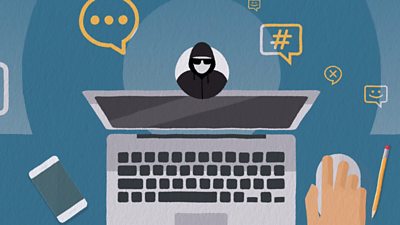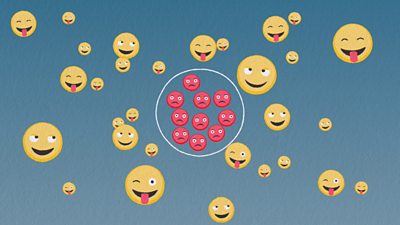I think we're seeing fake news pose two distinct and real problems. Firstly it's spreading false stories and misleading people. Pre-coronavirus this problem was serious, but in a Covid world this can be deadly.
When a blog, website or influential person writes that 'so and so can save you from coronavirus' it becomes dangerous. People can, and have, made some terrible and deadly decisions because of fake news around the pandemic.
Secondly, fake news is eroding trust in normally trusted sources. I think a recent government report into Russian meddling in elections put it really starkly: "When people start to say 'You don't know what to believe' or 'They're all as bad as each other', the disinformers are winning."
I'm seeing this in my everyday life with friends and family saying they are completely confused by world events and I'm seeing people fall back on their own entrenched views and opinions. These views are often fuelled by so-called filter bubbles on social media – communities that band together to reinforce a position.
Beyond fake news
Luckily there are great resources out there for us to be aware of and help combat fake news. The Beyond Fake News Academy website on Gateway is great. This is open to the public too so worth sharing with family and friends who may be interested.
There are also some great free services I've found to be really useful like which does a daily mail-out of the big issues about fake news stories and trends. This is especially useful since the pandemic and its subsequent 'infodemic' (in the words of the World Health Organisation!)
We also have the brilliant Disinformation Squad and Reality Check at the Beeb who are doing great work trying to combat some of the fake stories as they go viral.
Our role when it comes to media literacy fits perfectly with our mission to 'inform and educate' and it's a goal which has never been more important in my view.
When an Instagram account can get more hits and clout than the ���˿��� I think it becomes imperative for us to get out there and try to help people navigate the choppy waters we are in right now.
Boosting media literacy
I also think that boosting media literacy to our underserved audiences abroad is hugely important in places where the ���˿��� is less known or trusted. Not only does it serve a noble purpose and spread ���˿��� values of openness and truth but also, hopefully, builds a stronger bond with the audience in our own journalism.
It can be really hard to share tips on avoiding misinformation online. I know from my own friends and family that sending links to debunking articles or fact-checking your 'dumpster fire' of a family WhatsApp group can be exhausting and time consuming. A family lunch was recently derailed by a row about whether or not 5G was harmful and I learned from that how hard it is to share truthful information – and remember the facts and figures in the heat of the moment!
That's why (and I suppose I would say this!) it's great that we have the short digital video explainers about media literacy that we can share online. They're super short and deal with the potential social media 'pitfalls' in a concise way that we hope work well and will tool people up with the necessary critical thinking to question what they see for themselves.
As the saying goes: 'teach a man to fish and you feed him for a lifetime!'
Future of fake news
I'm in two minds when it comes to the how the issue will develop over the next couple of years. The negative side of me feels like fake news and misinformation is going to get worse.
I fear that established and trusted news providers are going to continue to lose market share and relevance as disruptors build their following based on polarizing politics and the pandemic. Whilst a varied and vibrant news landscape is to be welcomed I worry that we'll see more division and confusion.
The more positive prediction would be that people will become less susceptible to fake news and more savvy to the tricks and techniques used to spread these stories. Younger generations are, hopefully, more able to see through headlines and question things more.
This of course means that journalists jobs are even harder as I think trust is going to have to be earned anew and not guaranteed but that can only be a good thing.
If there's one thing people take away from the videos it's that social media is a complex minefield to be navigated carefully and thoughtfully!
 MicrotargetingWhat is microtargeting and how are companies and political parties using it to manipulate you online?
MicrotargetingWhat is microtargeting and how are companies and political parties using it to manipulate you online? Imposter accountsHow to spot fake accounts, fake engagement and bots.
Imposter accountsHow to spot fake accounts, fake engagement and bots. Filter bubblesWhat is a filter bubble or an echo chamber? Find out how algorithms reinforce your views and maybe your prejudices.
Filter bubblesWhat is a filter bubble or an echo chamber? Find out how algorithms reinforce your views and maybe your prejudices.
